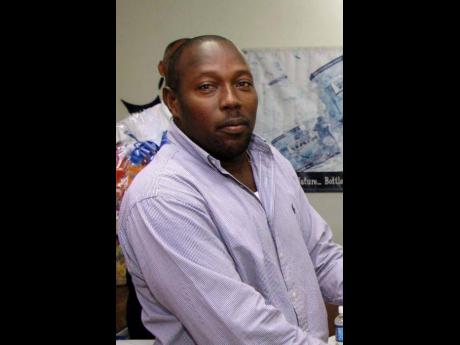‘BACK OFF’
Olympian Mair urges sports goods manufacturing companies to stop offering contracts to high school athletes
OLYMPIAN AND renowned high school track and field coach, John Mair, is calling on big sport goods manufacturing companies to stop offering contracts to young and emerging high-school track and field athletes. The St Jago High School coach says he...
OLYMPIAN AND renowned high school track and field coach, John Mair, is calling on big sport goods manufacturing companies to stop offering contracts to young and emerging high-school track and field athletes.
The St Jago High School coach says he understands that many of these youngsters come from very poor backgrounds and are tempted by the proposition of a professional contract. However, relating from experience, Mair said, as soon as many of these youngsters sign up to a big sports brand, they lose focus and become lazy. As a result, he is calling on the sport goods companies to step back and give the kids a chance to enjoy their school years and survive as student athletes.
“These companies need to back off and leave the athletes and allow them to breathe. They are stifling them at an early age. It might work for one but does not work for all,” Mair said.
“As soon as some of these young athletes see the money, the hunger is gone. They do not put in the work because things have become easy. They are now living good lives and driving nice cars. And that is why we are not seeing a lot of our young senior athletes coming through,” he opined.
AS SOON AS POSSIBLE
Mair also weighed in on the opinion of some that it is better for young athletes to leave high school and get into a professional environment as soon as possible, once they show that potential. However, he thinks it is wiser to go through college and acquire an education before going pro. He also believes this keeps their desire intact.
“When they leave school and get the money, they are not as hungry as they would have been if they had gone right off to a tertiary institution and did well in their academic situation before transitioning,” shared Mair, who matriculated from Jamaica College, where he was a top sprinter, into the US collegiate system.
“Some are coming from some very poor backgrounds but, if you went to high school as a poor child from a poor community, why can’t you survive for another few years and finish up school?” he argued.
Also, he believes that, even if the economic reality forces a talented youngster to sign too early, in the long term, it might not be the best decision.
“Say you sign as a female sprinter and you have more than five top female sprinters out there right now in Jamaica, where are you going to fit in to move on to the professional level and compete in Europe and around the world and make money?” Mair said.
“If you should finish college and wait a little, maybe by that time people will fall out and there is a better opportunity for you to get in. It also gives youngsters time for their bodies to mature and fully develop,” he stated.
The practice of granting contracts to high-school athletes has been going on for years, but has been placed under greater focus recently, with several young and up-and-coming athletes foregoing their high school by going pro and signing contracts. Mair says it should stop.
“It has been happening for a while now and it has been getting worse. They need to back off,” he said. “If they want to help, they can help by providing nutrition and equipment for teams, because there are some of these athletes still out there running barefooted.”

